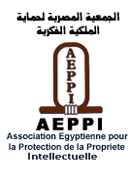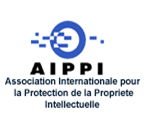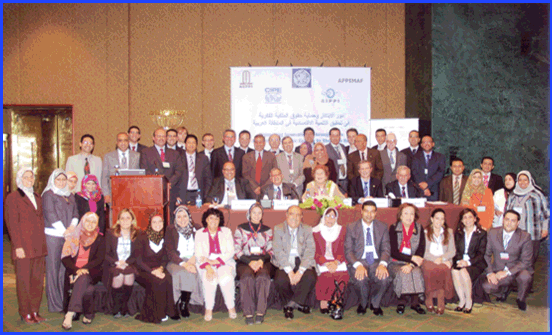





|
|||||||||||||||||||||
|
Fifth Session Why Research and Development are not Progressing in the Arab World |
|||||
|
|||||
| Brief Summary | |||||
|
Ms. Maha Bekheit has raised an important
question. Why has Research and Development leading to
Innovation in the Arab World not progressed?? She answered
the question by stating the reasons to the following:- |
|||||
|
Sixth Session Dispute Settlement and Effective Enforcement of IP |
|||||
|
|||||
|
Mr. Amr Abdel Aziz, in his speech,
emphasized that he always recommends that small and medium
enterprises obtain elgal advice regarding the enforcement of
intellectual property rights in order to save non-essential
expenses, without access to a successful outcome, as this is
a burden for these companies. |
|||||
|
|||||
|
The mission of these measures is to prevent counterfeit
goods from being brought into local markets and to combat
fraud and forgery. The TRIPS Agreement obliges all countries concerned to provide mechanisms for enforcement. In accordance with this Agreement, member countries should establish what is called FOCAL POINT that would ensure local laws are in line with TRIPS. The second speaker covered actions and provisional measures in the Egyptian law. The protection of intellectual property was essential to attract investment. Protection is not essential or important without the significance of its quick enforcement. The conflict in the intellectual property is in fact a civil dispute and the infringer will have to make compensation. The Intellectual Property Law was issued under No. 82 in 2002 to comply with the TRIPS Agreement and this Law contains several sections on patents and industrial designs, trademarks, and undisclosed information, and others. Also, Articles (33) and (35) of the Law deal with the infringement of patents. It empowers the judge to issue precautionary or provisional seizures in an ex parte procedure. On the other hand, Articles (114) and (115) deal with precautionary measures in trademarks while Article (135) deals with such measures against the infringement of marks and models. The conditions for issuing temporary and precautionary measures: 1. A right recognized by law. 2. The presence of an infringement on the right. 3. An interest in the prosecution against the infringer. Law No. 82 of 2002 did not specify the competent court and this will lead us to use the Civil and Commercial Procedures Law to determine the competent court. Finally Mr. Abou Ali recommended the following: - Unification of the rules of temporary measures in a separate section for all intellectual property rights. - Establishment of an independent authority combining all the competent authorities that deal with intellectual property. - Establishment of a court that specializes in intellectual property disputes. |
|||||
| Final Session | |||||
|
The Symposium ended with closing remarks from: Mr. Amr Abdel Aziz (WIPO) Mr. Stephen Freischem (AIPPI) Mr. Kamal Berti (APPIMAF) Ms. Hoda Serag El Din (AEPPI) Mr. Samir Hamza (AEPPI) Each of the above representatives summarized the issues that were addressed in the Symposium and the Reporter General highlighted the observations and recommendations of the Symposium as follows: 1. There must be a balance between IP protection with its exclusivity concept and free competition. This balance is required in order to secure proper economic growth. 2. There was a consensus among all lecturers that the condition of Research and Development (R&D) in the Arab world is poor and backward. Indeed, it is far below other countries in the world. 3. It was also agreed that R&D plays an important role in economic growth. This requires improvement in and introduction of new schemes to the current educational system in the region. Further, it requires allocation of more funds for R&D to universities and research centers whether from the Government or civil society. The relationship between R&D and IP rights was also addressed. 4. The Symposium confirmed that the SME should be aware of their valuable IP assets and its role in business expansion and combating counterfeiters or competitors. Awareness of SME of such valuable assets is a requirement for its growth and to avoid loss of goodwill and reputation in the market. 5. “Access to Knowledge” doctrine should be implemented as a means to enhance IP rights. This includes applying a patent system with full transparency to ensure continuous advancement in innovations. 6. The Symposium confirmed that licensing of IP rights is a means of transfer of technology to under developed countries. It further confirmed that licensing will stimulate economic growth in the region. The pitfalls in negotiating licensing agreements were also addressed. 7. The Symposium stressed the need to encourage civil societies to be involved in institutional R&D and innovations. 8. The Symposium recognized the positive effect of enforcement of IP laws and that such enforcement will enhance IP rights in all fields. The different means of enforcement, criminal or civil, including provisional measures, was also addressed. The Symposium requested that a special seminar be arranged regarding the possible disputes concerning domain names and its confusion with trademarks. After the final session a photograph was taken of the participants (enclosed). |
|||||
|
Prepared by: Samir M. Hamza Vice President of AEPPI Reporter General of the Symposium |
|||||
|
AEPPI Copyright © 2011, Developed by Artcells
